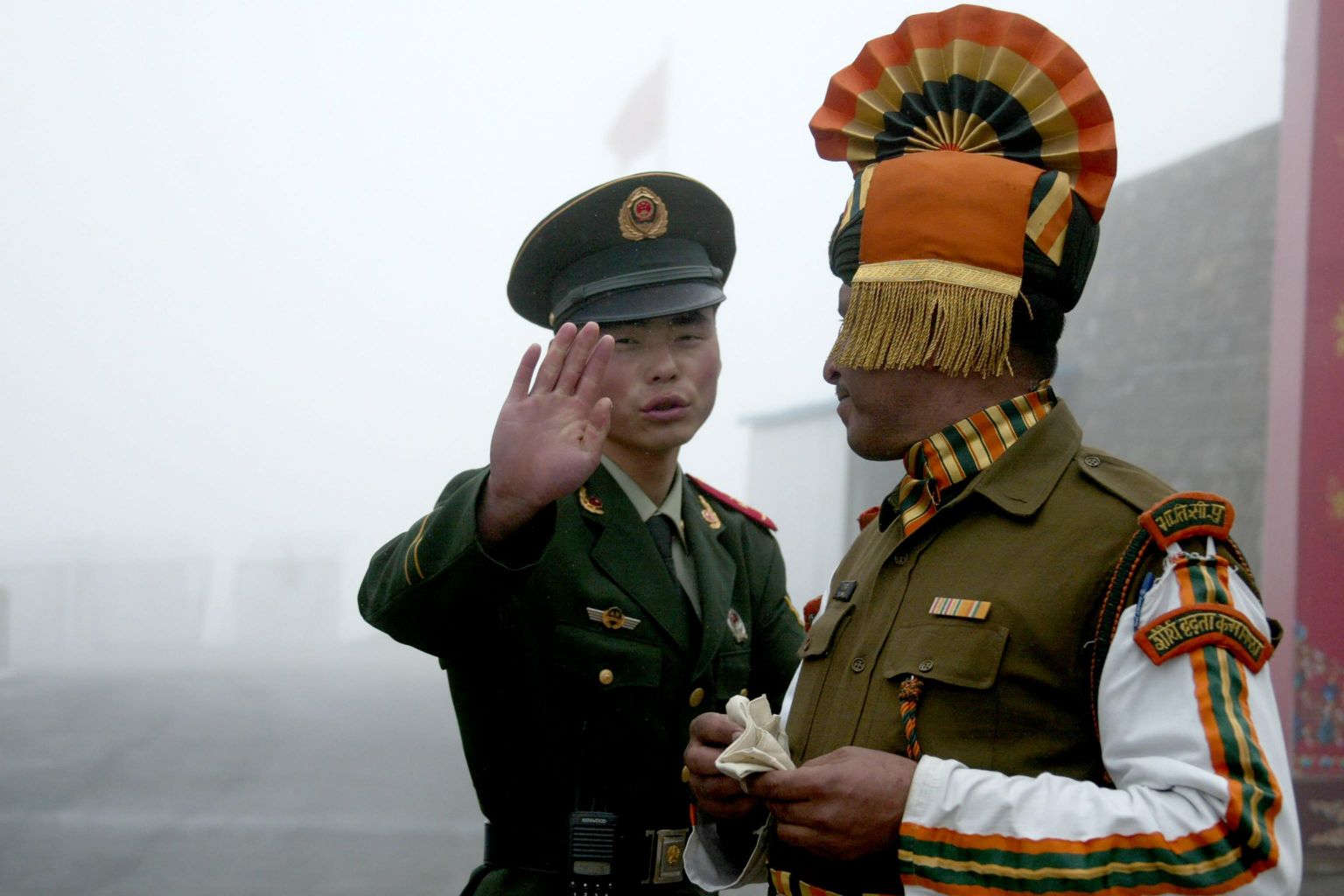India says troops had ‘minor face-off’ with China in Sikkim border area
Sign up now: Get insights on Asia's fast-moving developments

The incident happened last week at the Naku La pass in Sikkim state.
PHOTO: AFP
NEW DELHI - Indian and Chinese troops clashed at Naku La in the north-eastern state of Sikkim in what the Indian Army characterised as a "minor face-off", even as border talks are ongoing to stabilise the border.
The brawl, in which an unspecified number of soldiers were injured, occurred on Jan 20 in an area not currently among the areas of dispute.
A Chinese patrol reportedly came into Indian territory and was pushed back. The Indian Army said the skirmish "was resolved by local commanders as per established protocols".
Such incursions are common as the border is not demarcated at many points.
But this incident comes amid heightened tension and deep distrust as both nations are deadlocked in the worst border row in over four decades with any skirmish carrying the extra risk of escalation.
Soldiers from both sides last clashed in Naku La on May 9 last year.
The largely peaceful Line of Actual Control, the de facto border between India and China, turned tumultuous last June after a violent clash in Galwan Valley in Ladakh region. Some 20 Indian and an unspecified number of Chinese soldiers were killed in the fray.
Tensions spread to other parts of Ladakh as additional troops and weaponry from both sides were rushed to the border.
India accused China of disturbing the existing status quo; China charged that Indian troops had encroached its territory.
Both sides have stood down in Galwan by creating a buffer zone, but a resolution has remained elusive in other parts of Ladakh, including at Pangong Tso, a cross-border lake.
The Global Times, the official newspaper of China's ruling Communist Party, asserted that no clash had taken place at Naku La.
"There is no record of this incident in the Chinese People's Liberation Army (PLA) front-line patrol logs," an article stated.
Prof Srikanth Kondapalli, a professor in Chinese studies at Jawaharlal Nehru University, said that the downplaying of the clash indicated a reluctance to open another front in Sikkim.
"Neither India nor China would want to escalate border troubles. The weather conditions are adverse at minus 40 deg C. The Chinese also have a constraint in that they don't want to see any response on the border in the run-up to the 100th anniversary of the Communist Party," said Prof Kondapalli, referring to a key event in China this July.
But Prof Brahma Chellaney, a professor of strategic studies at the Centre for Policy Research, a New Delhi based think tank, interpreted the Naku La clash as a fallout of Chinese expansionism.
"Tibet's frontier with northern Sikkim used to be the only section of the border with India that China didn't dispute," he said.
"But the latest border clash is a reminder that China's increasing expansionism has created disputes even there, turning that peaceful section into a 'hot' border."
Border hostilities have spilled over into economic relations, with India moving to introduce additional rules for Chinese firms particularly in areas like telecommunications and power, and the banning of dozens of Chinese apps like Tik Tok.
China is India's largest trading partner, with bilateral trade hitting US$92.68 billion (S$122.95 billion) in 2019.
Indian foreign minister S Jaishankar recently said that the border troubles had "significantly damaged" ties between the countries.
In New Delhi, the thinking is that the border troubles have erupted due to India building up its infrastructure along the border to allow for quick movement of troops.
The border row has also become political fodder at a time when campaigning has started for state elections in Tamil Nadu and West Bengal.
Congress leader Rahul Gandhi at a rally in Tamil Nadu state on Sunday (Jan 24) vilified Prime Minister Narendra Modi for his silence over India's China troubles.
He said China has been emboldened by India's weak economy to make its incursions. "China can see that India is weak," he said.
Repeating the charges on Monday (Jan 25), he tweeted: "Had Mr Modi protected our farmers-labourers-workers instead of hollowing out India by helping his crony capitalist friends, China wouldn't have had the guts to take our land."
BJP leader Amit Malviya in turn accused Mr Gandhi of selling " India's interest to China" in reference to how trade deficit grew in favour of China during the country's Congress-led years.


